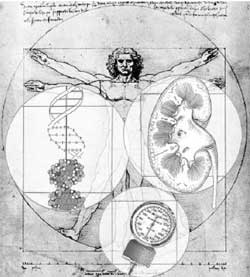 Technical Symposium – The Epidemic of Hypertension and Kidney Disease
Technical Symposium – The Epidemic of Hypertension and Kidney Disease
Medical School Auditorium, Health Sciences Center
8:30 a.m.
Public Forum – Silent Killers: High Blood Pressure & Kidney Disease
Freeman Auditorium, Woldenberg Art Center, Newcomb College
5:00 p.m.
More people die of cardiovascular diseases than the next seven leading causes of death combined. According to current estimates, 60 million Americans have one or more types of cardiovascular diseases. It is generally recognized that high blood pressure is a major cardiovascular risk factor and it is becoming increasingly apparent that hypertension and kidney diseases are closely linked by reciprocal interactions. In Louisiana and the Southeast region of the country, hypertension and kidney disease have an even greater prevalence than in other parts of the nation. This symposium asks scholars to explore various aspects of the current epidemic of hypertension and kidney disease, and to discuss strategies for reducing the incidence and impact of these silent killers. The researchers will conduct a technical symposium entitled “The Epidemic of Hypertension and Kidney Disease” and a lecture geared toward the general public called “Silent Killers: High Blood Pressure & Kidney Disease.” This public forum will focus on the prevalence and significance of these diseases to the people of Louisiana.
Speakers and Topics
Opening Remarks
Scott Cowen, president of Tulane University
Paul Whelton, senior vice president for health sciences
Lee Hamm and Gabriel Navar, directors, Hypertension and Renal Center of Excellence
“Diverse Mechanisms of NHE3 Regulation” by Robert Alpern, University of Texas Southwestern Medical Center
Robert J. Alpern holds the Ruth W. and Milton P. Levy Sr. Chair in Molecular Nephrology and the Atticus James Gill, M.D., Chair in Medical Science and is dean of Southwestern Medical School of the University of Texas Southwestern Medical Center. His research examines the molecular mechanisms responsible for regulation of NHE3, the proximal tubular apical membrane Na/H antiporter. A former chief of nephrology at the UT Southwestern Medical Center, Alpern is widely published in journals and books in the fields of nephrology and hypertension. He has sat on more than a dozen editorial boards, is a former president of the American Society of Nephrology, and is currently seated on the National Institute of Diabetes and Digestive and Kidney Diseases advisory council.
“Looking More Closely at Illness: Physiology and Translational Medicine” by Josephine Briggs, National Institute of Diabetes and Digestive and Kidney Diseases, National Institutes of Health
Josephine Briggs is a nephrologist and director of the Division of Kidney, Urologic, and Hematologic Diseases at the National Institute of Diabetes and Digestive and Kidney Diseases, part of the National Institutes of Health, U.S. Department of Health and Human Services. Formerly a professor at the University of Michigan in Ann Arbor, she now oversees national research programs to understand, treat and prevent kidney diseases. She also oversees the National Kidney Disease Education Program, a major effort to raise public awareness about the seriousness of kidney disease and the importance of prevention, early diagnosis and appropriate management of the disease and its complications.
“Angiotensinogen in Hypertension: From Genetics to the Kidney” by Jean Marc Lalouel, University of Utah
Jean Marc Lalouel is a professor of human genetics at the University of Utah. His training is in medicine and in quantitative genetics. His major interest is complex inheritance, particularly as it relates to common disease. In earlier stages of his career, he contributed fundamental advances in statistical modeling of complex inheritance in human pedigrees and developed novel statistical methods and algorithms for developing and using genetic maps to identify the location of disease genes by linkage mapping. His focus on common disease led to the identification of linkage and association between the angiotensinogen gene and essential hypertension. Unraveling the mechanism by which genetic variation in this gene can predispose to essential hypertension at the molecular, cellular and physiological levels has become a major research focus of his laboratory.
“Public Health Applications of Genetic Research” by Teri Manolio, National Heart, Lung and Blood Institute, National Institutes of Health
Teri A. Manolio is the director of the Epidemiology and Biometry Program, Division of Epidemiology and Clinical Applications, National Heart, Lung and Blood Institute, National Institutes of Health. She also holds a concurrent position as clinical professor of medicine and adjunct professor of preventive medicine and biometrics at the Uniformed Services University of the Health Sciences. In recent years, Manolio has examined the emerging importance of genetics in epidemiologic research, as well as cardiovascular disease in the elderly. Manolio will address the public health implications of genetic research.
